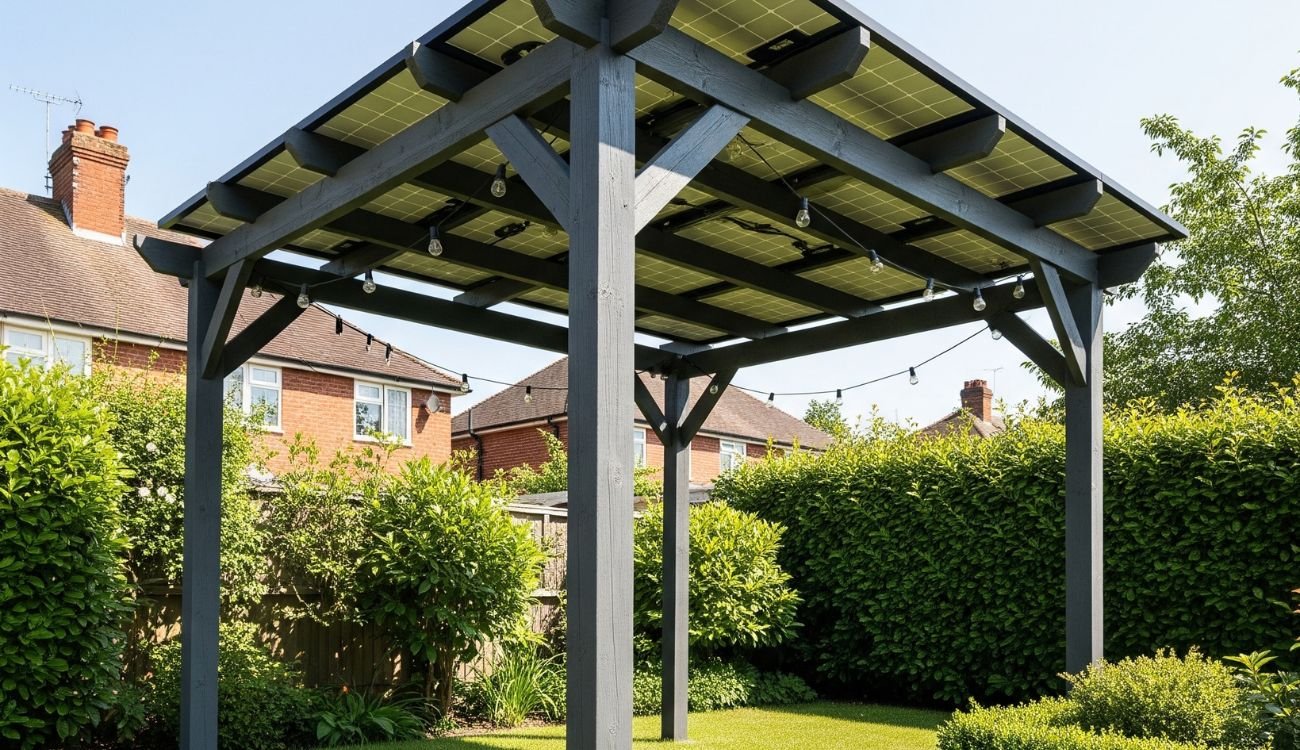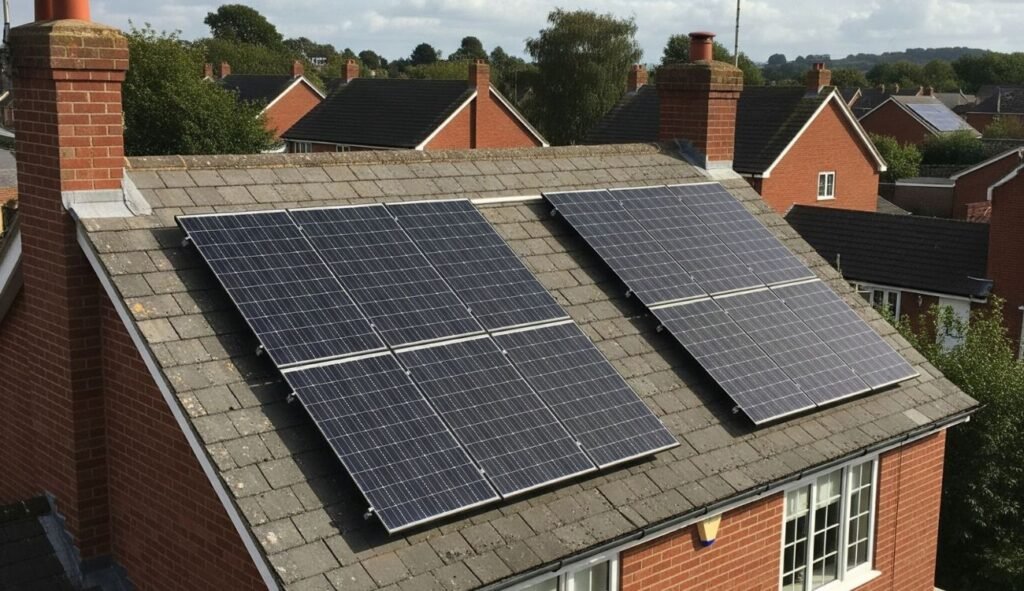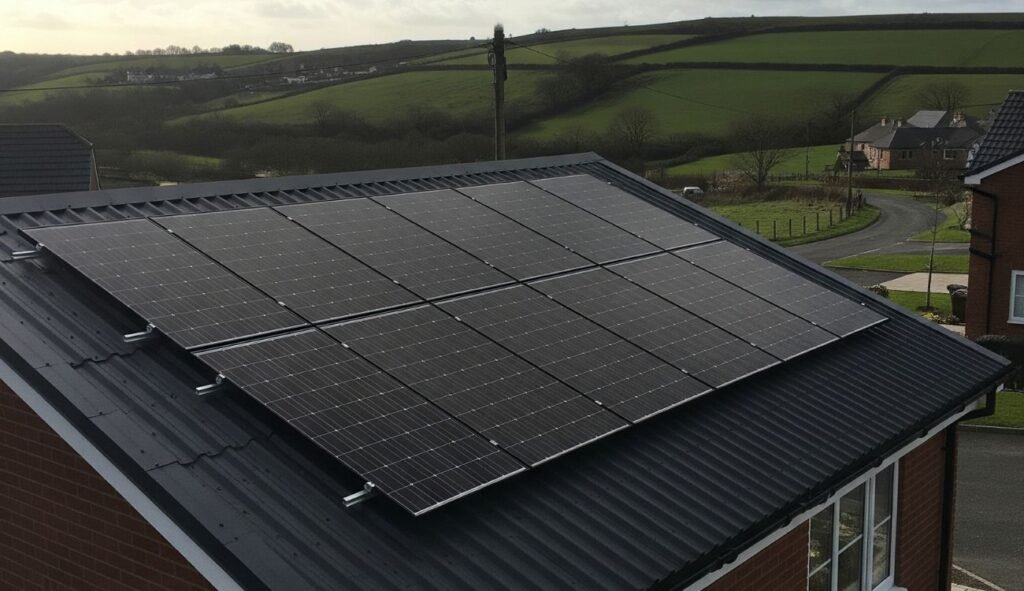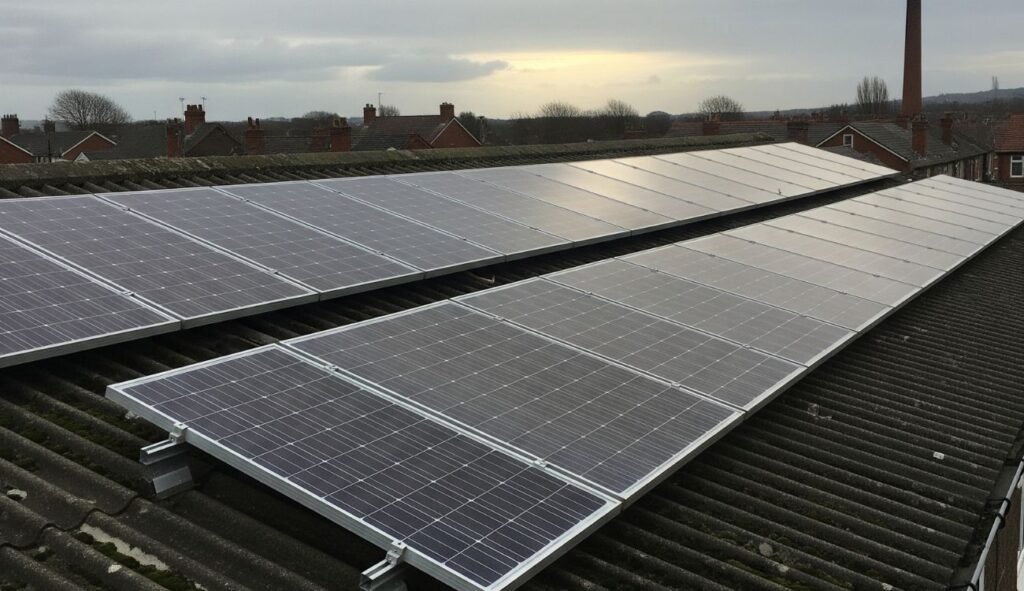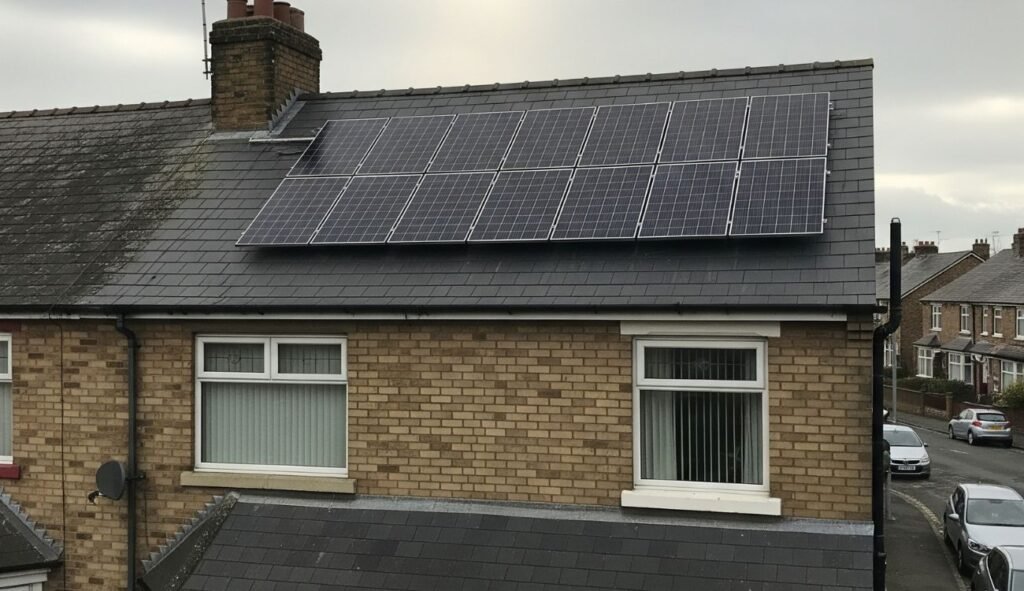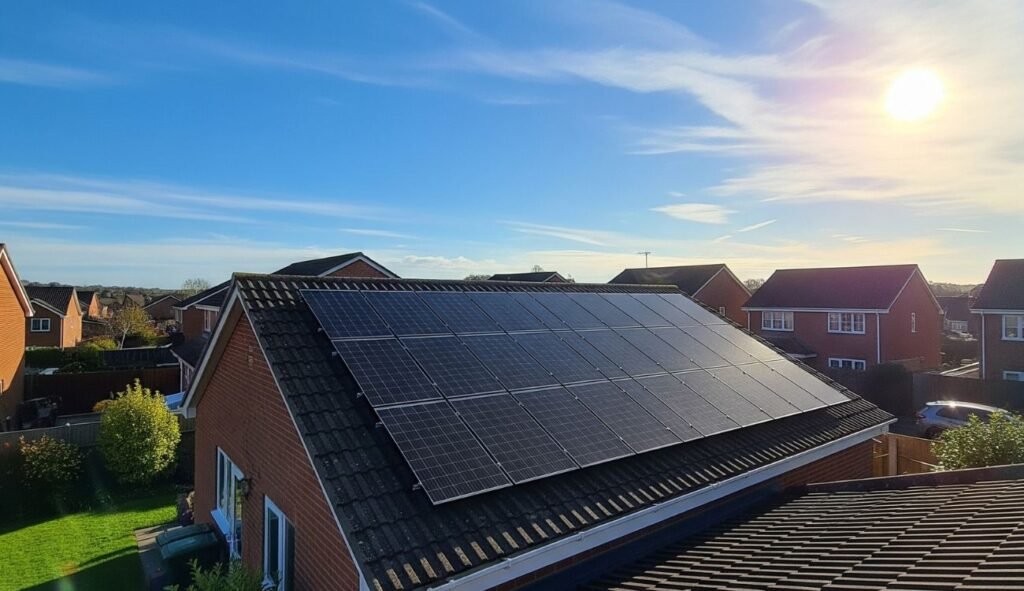A solar panel pergola is an innovative and stylish way to generate renewable energy while enhancing the usability of your outdoor space. Unlike traditional solar panel systems mounted on rooftops, these pergolas combine form and function offering shade and weather protection while producing clean, green electricity.
For UK homeowners, landlords, and commercial property owners looking to make the most of their space and energy bills, solar panel pergolas present a future-proof solution that also boosts property value.
How Does a Solar Panel Pergola Work?
A solar panel pergola operates similarly to a rooftop PV system but is installed as a freestanding or attached outdoor structure.
High-efficiency photovoltaic panels are integrated into the roof of the pergola, converting sunlight into electricity that powers your home or building.
These structures are typically built using robust materials like aluminium, steel, or treated timber, making them durable enough to withstand UK weather conditions.
In the North East of England, where sunlight can be variable, modern panels are still efficient enough to generate significant returns even on cloudy days.
If you live in Tyne and Wear, Newcastle, or anywhere across the North East of England, you can request a custom solar installation from Future Heat.
We are a trusted local solar provider with experience in both residential and commercial applications.
Is a Solar Panel Pergola Worth It in the North East of England?
Absolutely. While solar yield in the North East may be slightly lower than in the South of England, today’s high-efficiency panels are designed to perform well even in low-light conditions.
According to the Met Office, Newcastle receives an average of 1,325 sunlight hours per year, more than enough to generate meaningful solar output.
Furthermore, installing a solar pergola with a local provider like Future Heat ensures that you benefit from local expertise, compliant installation, and faster aftercare, something national companies often can’t match.
What Are the Benefits of Installing a Solar Panel Pergola in the UK?
1. Dual-purpose structure
Enjoy an outdoor living space that provides shade, weather protection, and power generation, perfect for patios, garden seating areas, carports, or commercial courtyards.
2. Reduces electricity bills
According to Ofgem, with UK electricity prices reaching 30.62p/kWh in 2024, generating your own solar power can significantly lower your energy bills.
3. Qualifies for government incentives
Solar panel pergolas are eligible under the Smart Export Guarantee (SEG) scheme. According to Ofgem, SEG pays you for every kWh of electricity exported back to the grid if you have a certified installer and a smart meter.
4. Environmentally sustainable
According to the Energy Saving Trust, a typical 4kW solar system reduces CO₂ emissions by around 1.6 tonnes per year, contributing to a greener, cleaner UK.
5. Ideal for properties with shaded or unsuitable roofs
For homeowners with north-facing roofs or listed buildings where traditional PV isn’t viable, a solar pergola is a perfect workaround.
What Are the Costs of a Solar Panel Pergola?
| System Size | Estimated Cost | Suitable For |
|---|---|---|
| 1.5kW – 2kW | £3,500 – £5,000 | Small gardens, bungalows |
| 3kW – 4kW | £6,000 – £8,500 | Semi-detached or terrace homes |
| 5kW – 6kW | £9,000 – £12,000 | Larger homes or small commercial setups |
| 10kW+ | £15,000+ | Commercial buildings or multi-residential sites |
These figures are approximate and will vary depending on your property layout, materials used, battery storage options, and your chosen installer. Battery integration will add another £3,000–£6,000, but increases energy independence.
What Permissions or Regulations Should I Be Aware Of?
In England, most domestic solar installations fall under Permitted Development Rights, but pergolas, especially large ones or those in conservation areas, may need planning permission.
It’s best to check with your local planning authority before installation.
How Do Solar Panel Pergolas Compare to Rooftop Solar Panels?
When deciding between a rooftop solar system and a solar panel pergola, it’s important to consider how each option aligns with your property’s layout, your energy goals, and planning permissions.
While both deliver clean energy and long-term savings, they offer different benefits depending on your specific needs.
The table below provides a side-by-side comparison to help you determine which option might be the better fit for your home or commercial property.
| Feature | Rooftop Solar | Solar Pergola |
|---|---|---|
| Uses existing roof space | ✅ | ❌ (Requires new structure) |
| Adds usable outdoor area | ❌ | ✅ |
| Aesthetic value | Moderate | High – modern & customisable |
| Flexibility in placement | Limited | Highly flexible |
| Planning permission | Sometimes required | Sometimes required (esp. for large structures) |
Frequently Asked Questions (FAQs)
Yes, while efficiency may drop slightly, modern solar panels can still produce electricity even in overcast conditions, just less than in summer months.
Absolutely. Pairing your solar pergola with a battery system allows you to store excess energy for use during peak times or overnight.
Most installations take between 2–5 days, depending on complexity. This includes groundwork, pergola construction, panel mounting, and electrical setup.
Yes, commercial solar pergolas are excellent for outdoor seating areas, walkways, or parking bays. They are scalable and can include advanced monitoring systems.
Conclusion
A solar panel pergola is more than just a trendy garden upgrade, it’s a forward-thinking investment that merges functionality, style, and sustainability.
Whether you’re a homeowner seeking energy independence, a landlord aiming to boost EPC ratings, or a commercial property manager wanting to cut operating costs, solar pergolas offer a practical and attractive solution.
With generous UK government incentives, local installers like Future Heat, and long-term savings on energy bills, there’s never been a better time to explore this exciting solar innovation.
Jamie Maguire is Managing Director at Future Heat Ltd, the UK-based renewable energy company specialising in heat pumps, solar panels and energy-efficient boiler solutions. He leads the company’s strategic vision to decarbonise homes and businesses across the UK by delivering innovative, sustainable heating and power systems. Jamie is passionate about shaping the future of energy, supporting communities and empowering teams of skilled engineers to deliver lasting value and carbon reductions nationwide.

